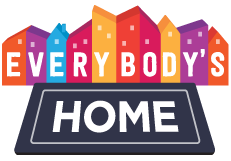Job summit must find housing solutions
30/08/2022
The Jobs and Skills Summit must consider the urgent need to expand social and affordable housing if it hopes to deal with core economic challenges such as productivity and labour mobility, according to key housing affordability advocates.
The joint call from Community Housing Industry Association, National Shelter, Homelessness Australia and Everybody’s Home comes as a raft of recent data and research demonstrates the economic toll of inadequate housing options for Australians on low and modest incomes.
An Impact Economics report last week showed how the affordable housing shortage gripping regional Australia is blowing a hole in local economies worth hundreds of millions of dollars, as employers struggle to attract staff due to low vacancy rates and skyrocketing rent.
In April Professor Andi Nygaard of Swinburne University revealed the foregone benefits of underinvestment in social and affordable housing. This found a cost to the national economy in areas such as health, justice, and education of $676.5 million annually, rising to $1.286 billion by 2036.
And the Anglicare Rental Affordability Snapshot found only five of the 45,000 properties available for rent on 19 March 2022 were affordable for a single person on Jobseeker.
Emma Greenhalgh, CEO of National Shelter said people won’t move to an area to take up a job if they can’t find a home.“Especially in regional Australia, rents have skyrocketed and home vacancies have plummeted, making it extremely difficult to fill critical jobs, especially in industries such as aged care and health. This is a national crisis that the jobs summit cannot afford to ignore.”
“It is hard to fathom a greater barrier to work than being homeless,” said Jenny Smith, Chair of Homelessness Australia “If someone is unsure where they are going to sleep, it’s simply fanciful to assume they will be job ready. By underinvesting in housing we are holding people back from full participation in work and driving deeper social and health problems. The bill for this ultimately ends up in more expensive services and it lands with the taxpayer.
Wendy Hayhurst, CEO of Community Housing Industry Association said limited housing options were a drain on national productivity and growth. “The private market is increasingly failing to provide the rental housing needed for a healthy economy. Greater Government investment is needed to bridge the gap between the cost of providing low cost rental homes and the rents that people on low incomes can afford to pay.”
Kate Colvin, national spokesperson for Everybody’s Home, said the Federal Government needs a plan to address the rental crisis before increasing migration to fill vacant jobs. “Migration is an important and valued part of the fabric of our nation, but without homes to live in, new Australians will simply add to the queues of people struggling to rent a home. Government needs a plan to rapidly deliver the affordable rentals needed to house any uplift in population.
Community Housing Industry Association, National Shelter, Homelessness Australia and Everybody’s Home said it was imperative that the Commonwealth began planning the annual construction of 25,000 new social and affordable rental homes every year.
Interviews: Levi Joule 0481 112 074
